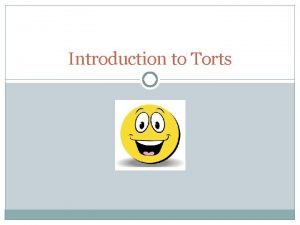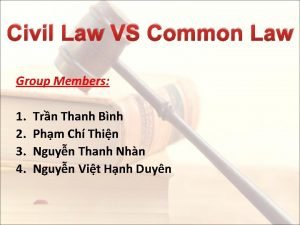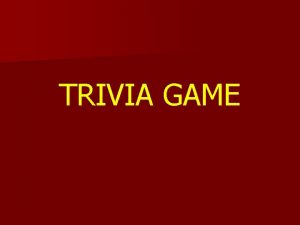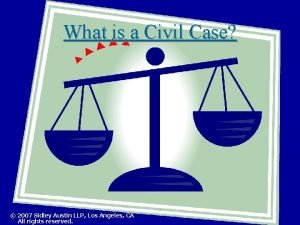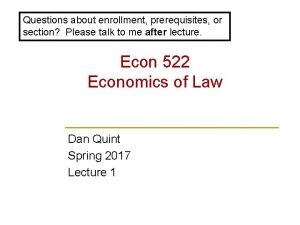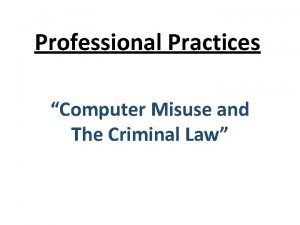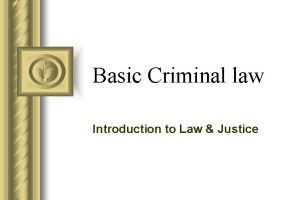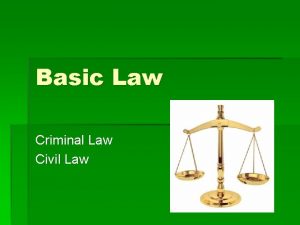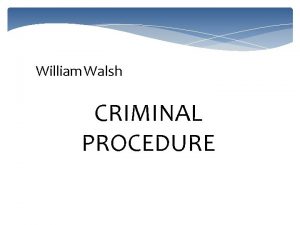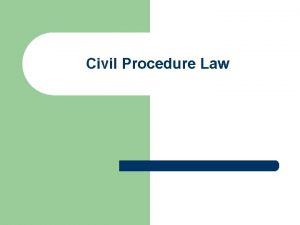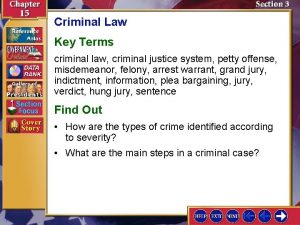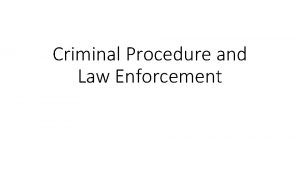Civil Court Procedure Civil Criminal Law The 6










- Slides: 10

Civil Court Procedure Civil & Criminal Law

The 6 steps of the Civil Court Procedure • 1 – Plaintiff files a complaint • 2? • 3? • 4? • 5? • 6? • Collaborate with your group to determine steps 2 -6 in the criminal court process • 5 -10 mins

Civil Case Procedure • Plaintiff: the person who files a lawsuit • Defendant: person being sued • Most civil cases are settled outside of court

Civil Case Procedure-Step 1 • Plaintiff’s Attorney files a complaint • The complaint states the wrong that the plaintiff says the defendant committed and how the plaintiff was harmed • A complaint may ask the court to order the defendant to pay the plaintiff a sum of money, called damages, for the loss • It may also ask the court to order the defendant to take a certain action, such as honoring a contract

Civil Case Procedure-Step 2 • Court sends a summons to the defendant • Summons: document that tells the defendant that he or she is being sued and when and where they need to appear in court

Civil Case Procedure: -Step 3 • Defendant’s attorney files a written answer

Civil Case Procedure-Step 4 • Attorneys for both sides exchange pleading documents • Discovery: lawyers for both sides gather evidence, check the facts, question possible witnesses

Civil Case Procedure-Step 5 • Attorneys for plaintiff and defendant argue cases in court • Most often a judge will decide the case, however either side can ask for a jury to hear the case and decide who wins • The plaintiff presents his/her evidence first, then the defendant • Lawyers for each side can question witnesses • After the case has been presented, the lawyers summarize their case

Civil Case Procedure-Step 6 • Court gives a verdict • If the defendant wins, the plaintiff gets nothing and may have to pay the court costs • If the plaintiff wins and damages are involved, the judge or jury sets the amount of damages the defendant must pay • Sometimes, the jury or judge may award the plaintiff punitive damages • Punitive damages: additional money paid to the plaintiff to punish the defendant for bad conduct

Appeals & Other Actions • The loser has the right to appeal the case to a higher court
 Difference between civil law and criminal law
Difference between civil law and criminal law Criminal law plaintiff
Criminal law plaintiff Difference between civil and criminal law table
Difference between civil and criminal law table Difference between civil and criminal law table
Difference between civil and criminal law table Is there a basketball court above the supreme court
Is there a basketball court above the supreme court Criminal cases vs civil cases
Criminal cases vs civil cases Common law and civil law
Common law and civil law Examples of civil law
Examples of civil law International contract
International contract Computer misuse and criminal law
Computer misuse and criminal law Concurrence in criminal law
Concurrence in criminal law

